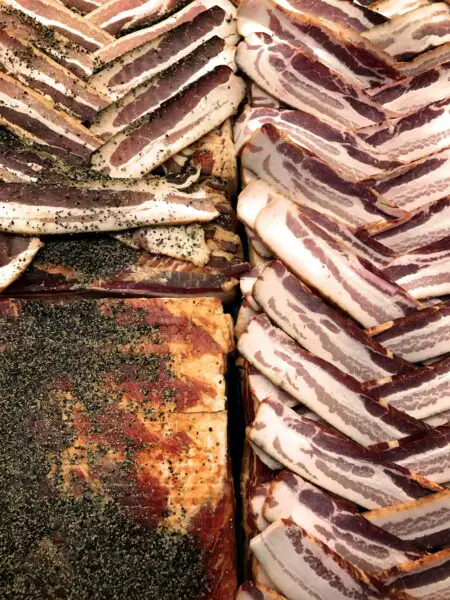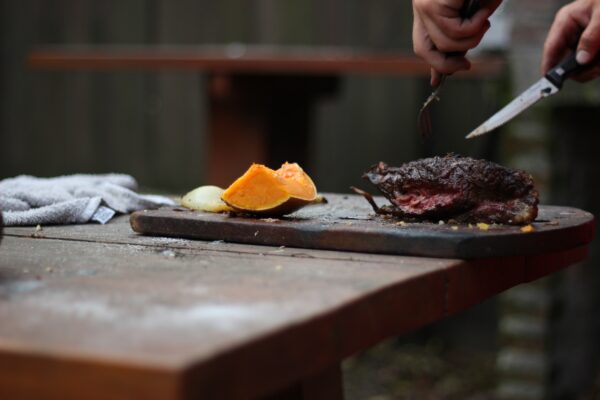In this article, we will explore the question of whether or not you can freeze cooked ribs with BBQ sauce on them. We will discuss the potential benefits and drawbacks of freezing ribs and provide you with some helpful tips to ensure the best results. By the end of this article, you will have a clear understanding of whether or not freezing cooked ribs with BBQ sauce is a viable option for you.
What is the Best Way to Freeze Different Types of Food?
When preserving the tart freshness of spring, one can freeze rhubarb without cooking to maintain its integrity. Blanche vegetables and cool promptly, whilst fruits generally prefer a sugar pack or syrup. Meat demands airtight wrapping to thwart freezer burn, ensuring savory flavors persist.
Can You Freeze Cooked Ribs With BBQ Sauce On Them
If you find yourself with leftover cooked ribs smothered in delicious BBQ sauce, you might be wondering if you can freeze them for future enjoyment. Freezing cooked ribs can be a convenient way to preserve their flavor and texture, allowing you to enjoy them at a later time. However, there are some important factors to consider before freezing your saucy ribs. In this article, we will explore the freezing process, preparation steps, packaging, and storage recommendations, as well as tips for thawing and reheating. So, let’s dive in and learn if you can freeze cooked ribs with BBQ sauce on them!

The Freezing Process
Freezing is a great way to extend the shelf life of many food items, and cooked ribs are no exception. When food is frozen, the low temperatures slow down the growth of bacteria and other microorganisms, preserving the quality and flavor of the food. However, it’s important to note that while freezing can halt the degradation process, it does not eliminate it entirely. Therefore, it’s essential to follow proper freezing techniques and ensure the ribs are stored correctly to maintain their taste and texture.
Preparing Ribs for Freezing
Before freezing your cooked ribs with BBQ sauce, there are a few essential steps to follow to ensure the best results:
-
Allow the ribs to cool: It’s crucial to let the cooked ribs cool down completely before freezing them. This step helps prevent condensation from forming inside the packaging, which could lead to ice crystals and affect the texture.
-
Remove excess sauce: While BBQ sauce adds incredible flavor to the ribs, excessive sauce can become watery when frozen and thawed. Before freezing, gently remove any excess sauce from the ribs using a paper towel or by lightly scraping it off.
-
Divide into portions: Consider dividing your cooked ribs into individual or meal-sized portions. This allows for easier thawing and reheating later, so you can enjoy smaller servings without having to defrost a large quantity of ribs.

Steps for Freezing Cooked Ribs with BBQ Sauce
Now that your cooked ribs are prepared, it’s time to freeze them with the BBQ sauce. Follow these steps for successful freezing:
-
Choose suitable freezer containers: Opt for airtight containers or freezer bags specifically designed for freezing food. They should be able to seal tightly and protect the ribs from moisture and freezer burn.
-
Pack the containers: Place the cooked ribs in the chosen containers, leaving some headspace at the top for any potential expansion during freezing. If using freezer bags, press out excess air before sealing.
-
Label and date the containers: To avoid confusion later on, label each container with the contents and the date of freezing. This will help you keep track of their freshness and ensure you use them within an appropriate timeframe.
-
Freeze as quickly as possible: To maintain the ribs’ quality, it’s important to freeze them as soon as they are packed and sealed. Place them in a freezer that is set to 0°F (-18°C) or below.
Packaging and Storing Cooked Ribs
Proper packaging and storage techniques are key to maintaining the quality of your cooked ribs during freezing. Here are some recommendations:
-
Airtight containers: Choose containers that are specifically designed for freezing food, or use heavy-duty freezer bags. These options help prevent air and moisture from entering, preserving the flavor and texture of the ribs.
-
Wrap in foil or plastic wrap: Before placing the ribs in the chosen container or bag, consider wrapping them in foil or plastic wrap. This extra layer helps protect the ribs from freezer burn and seals in their moisture.
-
Stack or lay flat: Depending on the available space in your freezer, you can either stack the containers or lay them flat. If you opt for stacking, make sure to place a piece of cardboard or a flat barrier between each layer to prevent the containers from sticking together.
-
Avoid overcrowding: Ensure there is enough space around each container for proper air circulation. Overcrowding can lead to uneven freezing and potential quality loss.

Thawing and Reheating Frozen Ribs
When the time comes to enjoy your frozen cooked ribs with BBQ sauce, it’s important to thaw and reheat them properly to preserve their flavor and texture. Here’s how:
-
Thaw in the refrigerator: The safest and recommended method for thawing cooked ribs is to transfer them from the freezer to the refrigerator. This slow thawing process allows for even defrosting and helps maintain the texture.
-
Reheat gently: Once the ribs are fully thawed, you can reheat them in various ways. Options include using an oven, grill, stovetop, or microwave. However, the key is to reheat them gently to prevent drying or overcooking. Basting the ribs with additional BBQ sauce during reheating can help retain moisture and enhance their flavor.
-
Check for proper temperature: Before consuming the reheated ribs, ensure they reach an internal temperature of at least 165°F (74°C). This helps ensure the elimination of any potential harmful bacteria.
Alternate Freezing Methods
While the recommended method for freezing cooked ribs is using a freezer, there are alternative methods you can consider if a freezer is not available:
-
Dry ice: If you have access to dry ice, it can be used to freeze the ribs quickly. However, it’s essential to handle dry ice with caution and follow proper safety guidelines.
-
Deep-freezing: If you own a deep-freezing unit capable of reaching extremely low temperatures, you can use it as an alternative to a regular freezer.
Freezing Tips and Recommendations
To make your frozen cooked ribs with BBQ sauce as delicious as possible, here are some additional tips and recommendations:
-
Use high-quality BBQ sauce: The flavor of your frozen ribs will largely depend on the BBQ sauce used. Opt for a high-quality sauce with flavors you enjoy to enhance the overall taste.
-
Remove bones, if desired: If you prefer boneless ribs, consider removing the bones before freezing. This can make the reheating process more convenient and allow for easier portioning.
-
Freeze ribs individually: To make it easier to defrost smaller portions, you can freeze individual ribs separately. Once frozen, transfer them to a freezer bag or container for long-term storage.
Quality and Safety Considerations
While freezing cooked ribs with BBQ sauce is generally safe, it’s important to consider a few quality and safety factors:
-
Texture changes: Freezing and thawing can affect the texture of the ribs. They may become slightly softer or lose some of their original crispness. However, the rich flavor and overall taste should still be preserved.
-
Timeframe for consumption: To maintain optimal quality, it’s recommended to consume the frozen cooked ribs within 2 to 3 months. While they may still be safe to eat after this timeframe, the taste and texture may deteriorate.
-
Check for signs of spoilage: Before consuming the thawed ribs, always check for any signs of spoilage, such as unusual odors, sliminess, or an off-color appearance. If any of these indications are present, discard the ribs to ensure your safety.
Conclusion
In conclusion, cooked ribs with BBQ sauce can be successfully frozen and enjoyed at a later time. By following proper preparation, packaging, and storage techniques, you can preserve the delectable flavors of these saucy ribs. Remember to thaw and reheat them gently to prevent dryness or overcooking. With these tips and recommendations, you can confidently freeze your cooked ribs with BBQ sauce and savor their mouthwatering taste whenever you desire.


